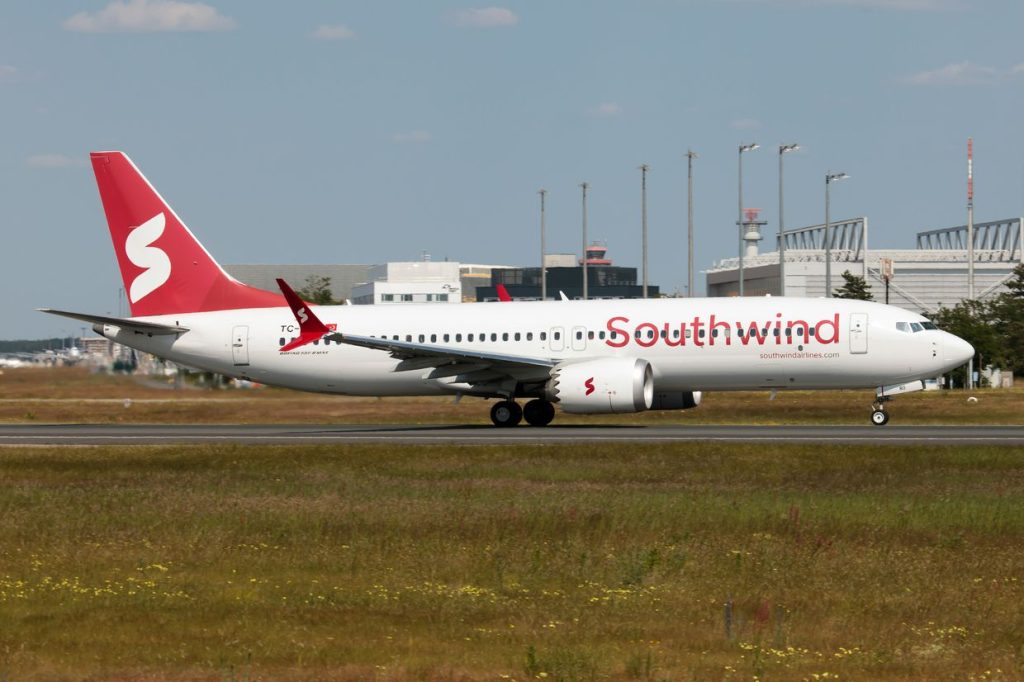The EU has banned the Turkish airline Southwind from flying in its airspace due to evidence of the company’s links to Russia. This decision was made following Russia’s full-scale invasion of Ukraine on Feb. 24, 2022, which led to the banning of Russian airlines or Russian-owned airplanes from using EU airspace. Southwind Airlines, founded in April 2022 in Turkey, operates flights to several destinations in Russia, Belarus, Moldova, Lebanon, and North Macedonia. Finland’s transport authority denied the airline landing rights for a route between Antalya and Helsinki, citing evidence that the airline is controlled by Russia. As a result, Brussels banned Southwind from taking off, landing in the EU, or flying above EU airspace. The airline is also prohibited from operating flights to several cities in Germany.
In response to the ongoing conflict in Ukraine, the government in Kyiv aims to reopen airports for air travel, despite Russia’s continued launch of drones and missiles across the country. After more than two years of airport closures following the start of the full-scale invasion, Ukraine’s infrastructure minister confirmed that discussions were underway to resume air travel. However, the feasibility of this plan remains uncertain given the ongoing hostilities in the region. The prospect of reopening airports in Ukraine raises questions about the potential risks and challenges involved in resuming air travel amidst a conflict zone.
The US, UK, and Canada have also imposed similar bans on Russian airlines, further isolating Russia in the global aviation industry. These decisions come in response to Russia’s aggression in Ukraine and its violation of international norms and agreements. The bans restrict Russian airlines from operating in the airspace of these countries, limiting their ability to conduct international flights and maintain connections with other nations. The aviation sector has become a battleground in the wider geopolitical conflict between Russia and Western countries, as restrictions on airlines serve as a means of exerting pressure on the Russian government.
The ban on Southwind Airlines highlights the complexities of the aviation industry and the challenges posed by geopolitical tensions. The airline’s alleged ties to Russia led to its exclusion from EU airspace and the suspension of its planned routes to various European destinations. By targeting airlines with suspected connections to Russia, Western countries aim to prevent the exploitation of aviation resources for nefarious purposes. This approach reflects the broader strategy of using economic sanctions and restrictions to deter Russian aggression and compel the Kremlin to adhere to international norms and cease its hostile actions.
The conflict in Ukraine has had ripple effects throughout various sectors, including aviation, as countries grapple with the implications of continued violence and instability in the region. The decision to ban Southwind Airlines serves as a reminder of the interconnectedness of the global aviation industry and the need for cooperation among nations to uphold safety and security standards. As Ukraine seeks to reopen its airports and resume air travel, it faces the dual challenge of addressing logistical concerns while navigating the ongoing conflict with Russia. The future of aviation in the region remains uncertain amid shifting geopolitical dynamics and escalating tensions between Russia and Western nations.
In conclusion, the ban on Southwind Airlines underscores the impact of the Ukraine conflict on the aviation industry and highlights the measures taken by Western countries to isolate Russia in response to its aggression. The decision to restrict the airline’s operations reflects broader efforts to apply pressure on the Kremlin and deter further destabilization in the region. As Ukraine considers reopening its airports, the challenges of resuming air travel amidst a conflict zone underscore the complex interplay between geopolitics and aviation. By supporting independent journalism in Ukraine and staying informed about developments in the region, individuals can contribute to efforts to promote transparency and accountability in a volatile geopolitical landscape.


